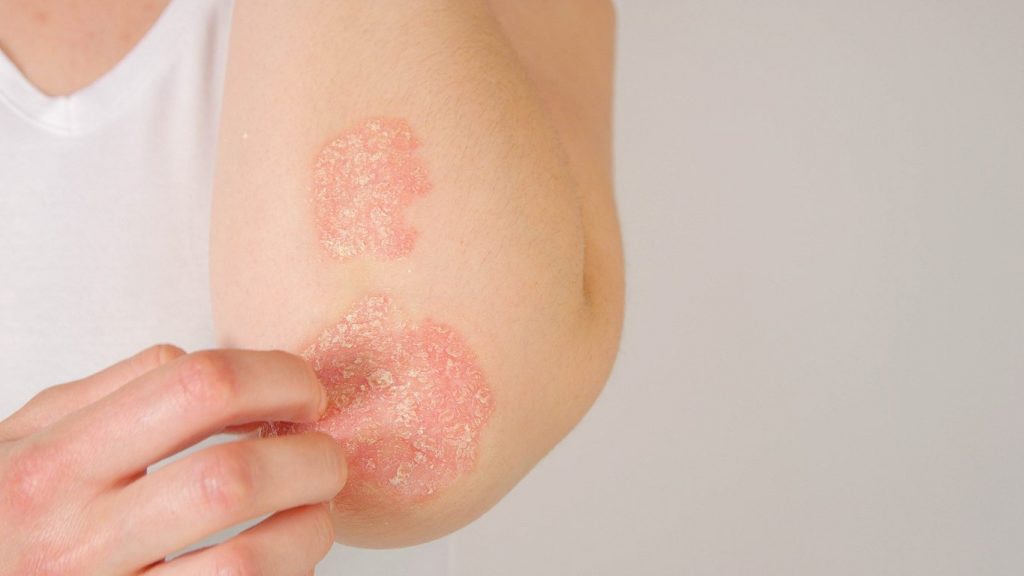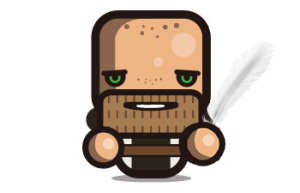FREE Shipping on Orders over $89 with Account – Create One Today!
- (844)-859-9400
- Get Help

There are moments when you feel like an itch won’t go away. You haven’t given it much thought, then it becomes so bothersome that no amount of ointment or lotion will help. Similar search results appear: psoriasis and eczema. But what’s the difference between psoriasis vs eczema?
They look and feel the same in terms of discomfort. However, there are differences that allow you to tell them apart. And learning what those differences are can help you find a better solution.
Remember, it’s important to consult your physician for an accurate diagnosis and best treatment for your condition.
Understanding how psoriasis and eczema differ from each other can help you accurately identify which one you have. You can start by identifying the following factors:
Eczema and psoriasis are both skin diseases, and the causes are generally similar. For instance, both psoriasis and eczema are thought to be triggered by genetics and/or a problem with the immune system.
In both cases, the immune system causes your body to create new cells too fast, which pile up on top of your skin and begin to itch and feel sore. Both are believed to be caused by a combination of triggers, immune system tendencies, and genetics.
At first glance, the patchy and red rashes of psoriasis and eczema may look alike. However, looking closer reveals subtle differences, which are the following:
One way to tell psoriasis and eczema apart is through their location. Here are some differentiators between these skin diseases:
Telling scalp eczema vs psoriasis apart may be difficult. But it can be different, with psoriasis having round or oval patches on the scalp while eczema has small and patchy dandruff-like scales.
Eczema and psoriasis can affect people of all ages, but eczema appears in young children and babies most of the time. On the other hand, psoriasis tends to appear later on, which is between 15 and 35 years old.
The American Academy of Dermatology reports that only 1% of children have psoriasis, with babies at an even lower percentage. As for children with eczema, it’s noted that their skin disease usually improves or goes away as they get older.
Psoriasis and eczema will tend to have distinct triggers . These triggers can lead to flare-ups, which appear for a period of a few weeks to a few months.
Before starting your treatment, you must visit a dermatologist to discuss your symptoms.
The doctor will give you a physical examination. They may also take some inflammation samples to determine if it’s eczema, psoriasis, or other skin disorders. It’s essential to make this distinction so the dermatologist can create the right treatment plan for you.
Sadly, there’s no definite cure for psoriasis or eczema. However, there are treatments that you can use to provide symptom relief, prevent flare-ups, and promote healing. Your dermatologist may prescribe a combination of over-the-counter skin products, such as moisturizers for dry skin or topical corticosteroids. For more severe cases, the dermatologist will prescribe stronger medications.
Moisturizers and lotions will be your best friends as you experience flare-ups. These can relieve dryness and discomfort and are ideal for treating mild-to-moderate eczema and psoriasis. Find the right product that can bring enough coverage, and consider how dry or scaly your skin is before settling on one brand. Also, keep your skin, especially the infected area, clean and avoid using harsh soaps and hot water.
Eczema and psoriasis are indeed both annoying skin diseases that cause discomfort. And if you believe that you have either of these skin conditions, visiting a dermatologist should be your number one priority. They can create a treatment plan that works best according to your needs.
If you have rashes due to eczema or psoriasis and are finding some relief, using a moisturizer helps. Medical Monks has a wide range of moisturizers that your itchy skin will love. Start taking care of your skin now.

Edited for content by ADAM PAGE.
